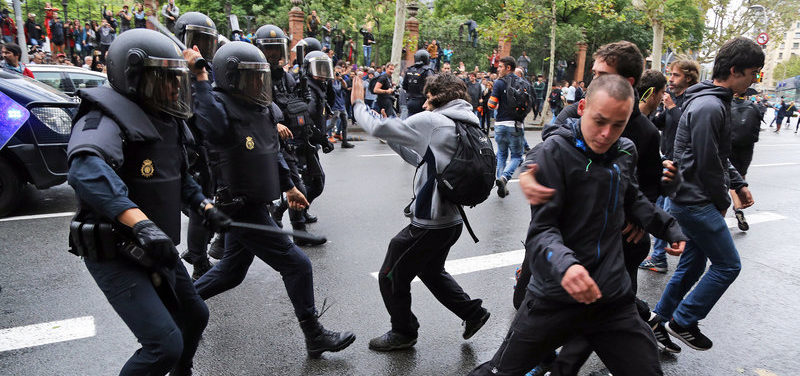03.10.2018 - 20:15
|
Actualització: 03.10.2018 - 22:15
Amnesty International condemned on the passive role the Spanish prosecutor has played in investigating the police violence seen during the referendum vote on October 1 2017, which aimed to stop the vote and left 1,066 people injured. In a statement published on the human right NGO’s website, the director of the organisation in Spain, Esteban Beltrán, emphasized that “there’s still a long way to go in investigating abuse by the police.”
Further, Beltrán noted that the positive steps taken in the investigation have been done at the initiative of the victims or the judges heading the investigation, “without the [Spanish] prosecutor playing its active role.” Amnesty International is working on three concrete cases, including that of Roger Español, a victim of the police violence from the referendum who lost an eye in the confrontation, and who has been active in speaking about the occurrence.
This is not the first time the NGO has spoken out about Spain’s role in Catalonia’s push for independence. Days after the police violence itself, they qualified it as “excessive and disproportionate force against demonstrators who were peacefully resisting.” Earlier this year, it also released a report warning that Spain’s prosecutor and the Ministry of Interior “were obstructing” investigations about the Spanish police intervention on October 1.
No systemic investigation
Human Rights Watch (HRW) documented “excessive force” and “disproportionate” police actions during the operation to stop the vote. In a report last year, it urged the Spanish government to start “a broad, systemic investigation into the use of force.”
“That broader systemic understanding has not yet happened,” said Kartik Raj, Western Europe Researcher at Human Rights Watch. Instead, only some “individual complaints” have been raised by people and have gone “through the various means available” to them, including some courts. Although a lot of complaints have been dismissed, others have been successful and a dozen Spanish police officers are being investigated and “will be required to answer some questions.”
“That sort of piecemeal response is what I’m aware of, but I’m not aware of any systemic efforts to look into what happened that day,” Raj said. “We strongly recommended the Spanish government to take steps to make clear what happened on that day and to look into the allegations. With regret, the government at the time offered no response to the findings, and no response to our efforts to contact them,” the Human Rights expert explained.
New Socialist government in Spain
With the change of government in Madrid and the new Socialist administration, no steps have been taken either. Raj is not aware of any contacts between HRW and the Pedro Sánchez government in response to their report last year, and warns that offering no investigation is not healthy for a democracy.
“The party responsible for ensuring that everyone in the territory of Spain enjoys human rights to the fullest degree possible is the Spanish government, that responsibility lies with them,” he said.


